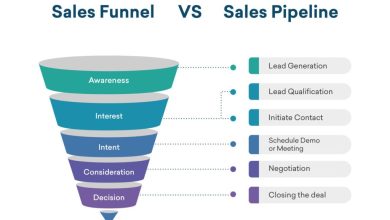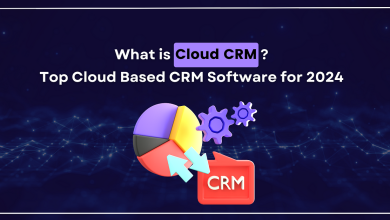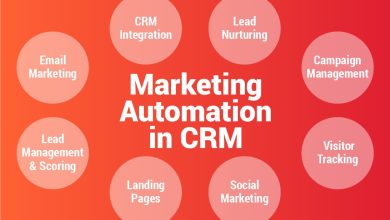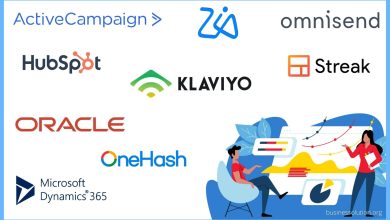Best CRM Software for Small Businesses The Ultimate Guide to Boosting Productivity and Growth
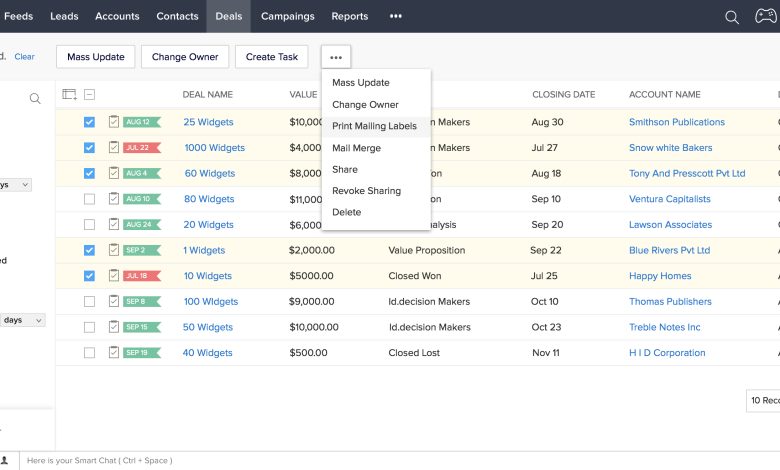
Best CRM Software for Small Businesses: The Ultimate Guide to Boosting Productivity and Growth introduces you to the essential tools and strategies for transforming your customer relationships. Whether you’re just starting out or looking to scale up, the right CRM can make a world of difference in how you manage contacts, track sales, and streamline communication across your team.
This guide explores what CRM software is, why it matters for small businesses, and how it can drive both productivity and growth. You’ll discover key features to look for, how to choose the best solution for your needs, and tips for successful implementation. With practical comparisons, real-world examples, and detailed recommendations, you’re equipped to make a confident decision that supports your business goals.
Introduction to CRM Software for Small Businesses
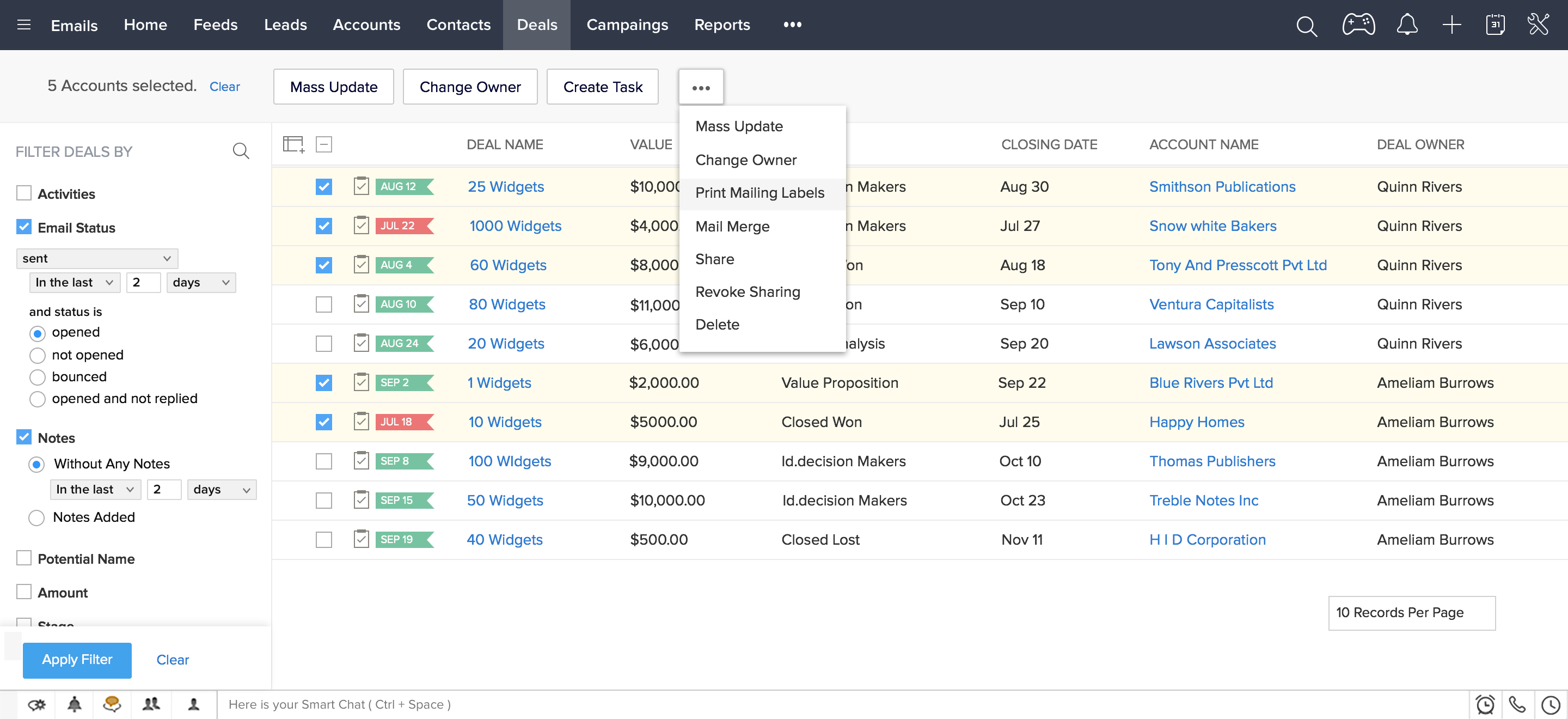
Customer Relationship Management (CRM) software has become an essential tool for small businesses striving to stay competitive in today’s fast-paced market. Designed to help manage and analyze customer interactions, CRM systems centralize vital information, streamline communication, and empower teams to deliver better customer experiences.
In the context of small businesses, CRM software is not just about tracking sales—it’s a holistic solution for managing contacts, nurturing leads, organizing tasks, and ensuring no opportunity falls through the cracks. The ability to access a unified view of customer data can transform the way small teams collaborate, respond to customer needs, and grow their business efficiently.
Importance of CRM in Boosting Productivity and Growth
Maintaining strong customer relationships is a cornerstone of any growing business. CRM software plays a pivotal role by automating routine tasks, coordinating sales activities, and providing actionable insights. This leads to faster response times, higher customer satisfaction, and increased revenue opportunities.
However, without a reliable CRM, small businesses often face challenges such as disorganized customer data, missed follow-ups, poor communication between team members, and limited understanding of customer preferences. These hurdles can stifle productivity and slow down overall business growth.
“Implementing a CRM is not just about managing contacts—it’s about building lasting relationships that fuel your company’s future.”
Core Features of Effective CRM Software
Every CRM platform offers a suite of tools, but not all systems are created equal. The right CRM for small businesses should include functionalities that address their unique challenges—streamlining daily operations and supporting growth without overwhelming users.
Essential CRM Features and Their Business Impact
Effective CRM solutions come equipped with features that go beyond basic contact storage and offer tangible benefits:
| Feature | Description | Benefit | Small Business Use Case |
|---|---|---|---|
| Contact Management | Centralizes customer data, notes, and communication history | Improves organization, easy access to information | Quickly reference past conversations to personalize service |
| Sales Pipeline Tracking | Visualizes deal stages, tracks progress, sets reminders | Reduces lost leads, forecasts revenue better | Monitor which deals need attention to meet targets |
| Task Automation | Automates repetitive tasks such as follow-ups and data entry | Saves time, reduces manual errors | Auto-send follow-ups after client meetings |
| Reporting & Analytics | Generates insights on sales, customer behavior, and performance | Data-driven decision-making | Identify top-performing products and sales reps |
Benefits of Using CRM Software for Small Businesses
Implementing a CRM system offers a wide range of advantages for small businesses. These benefits translate directly into improved efficiency, stronger customer relationships, and scalable growth.
Key Advantages of CRM Adoption
A CRM solution brings together people, processes, and data, making it easier to manage every aspect of the customer lifecycle. Here are the primary benefits:
- Enhanced customer service through organized information and history tracking
- Streamlined operations with automated workflows and task management
- Better team collaboration via shared access to customer data
- More accurate sales forecasting and pipeline visibility
- Increased customer retention through timely follow-up and personalized communication
Real-World Scenarios Demonstrating CRM Impact
To illustrate, consider a local marketing agency that implemented CRM software to manage client projects. Before CRM, the team struggled with missed deadlines and duplicate work. After adoption, automated reminders and centralized notes reduced errors and improved client satisfaction.
Another example is a small retailer that leveraged CRM analytics to identify buying patterns. By tailoring promotions to repeat customers, the retailer boosted repeat sales by 25% within six months. These cases highlight how CRM tools can drive both immediate and long-term business growth.
Types of CRM Solutions: Cloud-Based vs On-Premise
The choice between cloud-based and on-premise CRM solutions greatly influences cost, flexibility, and technical requirements for small businesses. Understanding the strengths and limitations of each helps ensure the right fit for specific business needs.
Comparison of Cloud-Based and On-Premise CRM Options
Cloud-based CRM solutions are hosted online, requiring no local servers, making them popular for small businesses seeking flexibility and lower upfront costs. On-premise CRMs, meanwhile, run on company-owned infrastructure, offering greater control but demanding higher technical investment.
| Type | Cost | Scalability | Accessibility |
|---|---|---|---|
| Cloud-Based | Lower upfront, subscription-based | Easily scalable as business grows | Accessible from anywhere with internet |
| On-Premise | Higher initial investment, maintenance costs | Requires manual upgrades for scaling | Limited to office network or VPN |
Cloud-based CRMs are generally more suitable for small businesses that prioritize mobility, ease of use, and minimal IT management. On-premise solutions may be considered by those with strict data security needs and in-house IT resources.
Key Factors to Consider When Choosing CRM Software
Selecting the right CRM software is a strategic decision that affects many aspects of daily operations. Small businesses should carefully evaluate solutions against their unique requirements to maximize value and ensure lasting effectiveness.
Important Criteria in CRM Selection
It’s vital to consider several factors during evaluation, such as budget constraints, growth plans, and compatibility with current business tools. Industry-specific features may also play a significant role, especially for businesses in regulated or specialized sectors.
- Ease of use and user interface simplicity
- Integration with existing tools (email, marketing, accounting)
- Cost structure (subscription, licensing, hidden fees)
- Scalability as the business expands
- Quality of customer support and available resources
- Industry-specific capabilities and compliance
Checklist for Evaluating CRM Solutions
A structured approach to CRM selection helps avoid costly mistakes. Use the following checklist when reviewing options:
- Is the CRM easy to onboard for new users?
- Does it offer integrations with your essential business apps?
- What are the total costs, including add-ons or upgrades?
- Will the CRM grow with your business needs?
- Is industry recognition or compliance relevant for your sector?
- Are training and support services included?
Top CRM Software Recommendations for Small Businesses
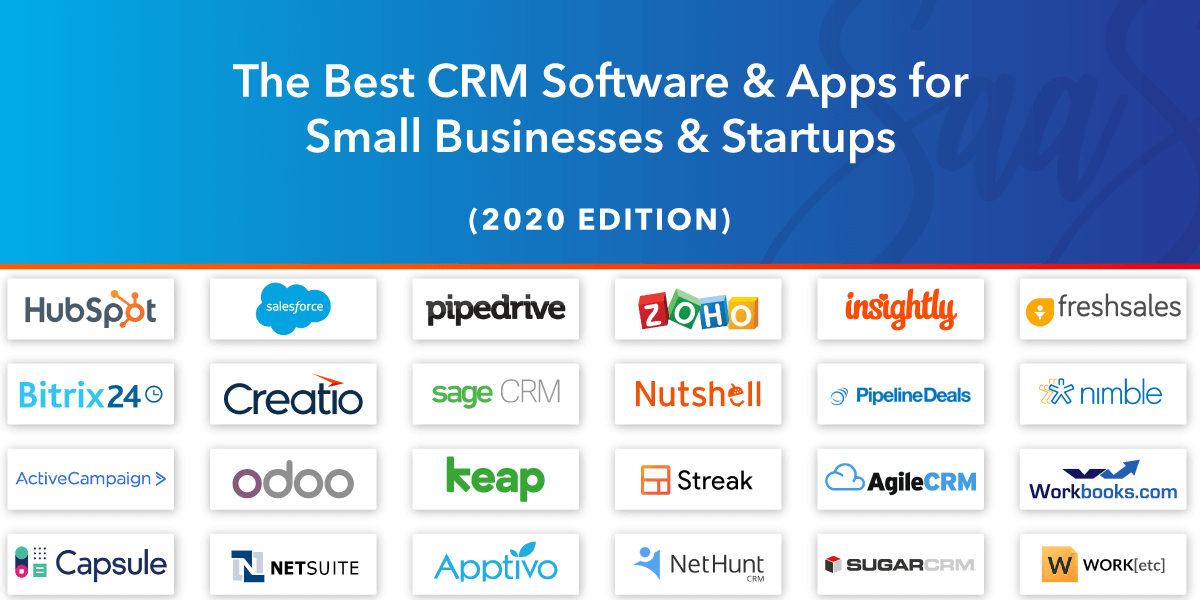
With a crowded marketplace of CRM options, it’s important to highlight solutions that are tailored to the needs and budgets of small businesses. Each recommended software below stands out for its balance of features, cost-effectiveness, and proven track record with small teams.
Comparison of Leading CRM Solutions
The following table summarizes the top CRM software choices, highlighting their core features, pricing, and unique selling points:
| CRM Name | Key Features | Pricing | Unique Selling Points |
|---|---|---|---|
| HubSpot CRM | Contact management, deal tracking, email integration, automation | Free tier; Paid plans from $50/month | User-friendly interface, robust free version, scalable upgrades |
| Zoho CRM | Lead management, workflow automation, analytics, mobile app | From $20/user/month | Highly customizable, strong automation, affordable |
| Pipedrive | Sales pipeline visualization, reporting, integrations | From $21/user/month | Visual pipeline, intuitive setup, customizable stages |
| Freshsales | AI-based lead scoring, email tracking, workflow automation | From $15/user/month | AI-powered insights, built-in phone, fast implementation |
User Experiences and Case Studies
HubSpot CRM helped a boutique design firm centralize all client communication, resulting in a 30% increase in project turnaround speed.
A retail startup using Zoho CRM halved manual data entry and improved follow-up efficiency, boosting customer retention rates significantly.
Pipedrive’s visual pipeline allowed a small real estate team to track deals more easily, leading to a measurable increase in closed sales.
A sales agency adopted Freshsales and leveraged its AI lead scoring to prioritize prospects, which led to a 20% improvement in lead conversion over one quarter.
Implementation Best Practices for CRM Adoption
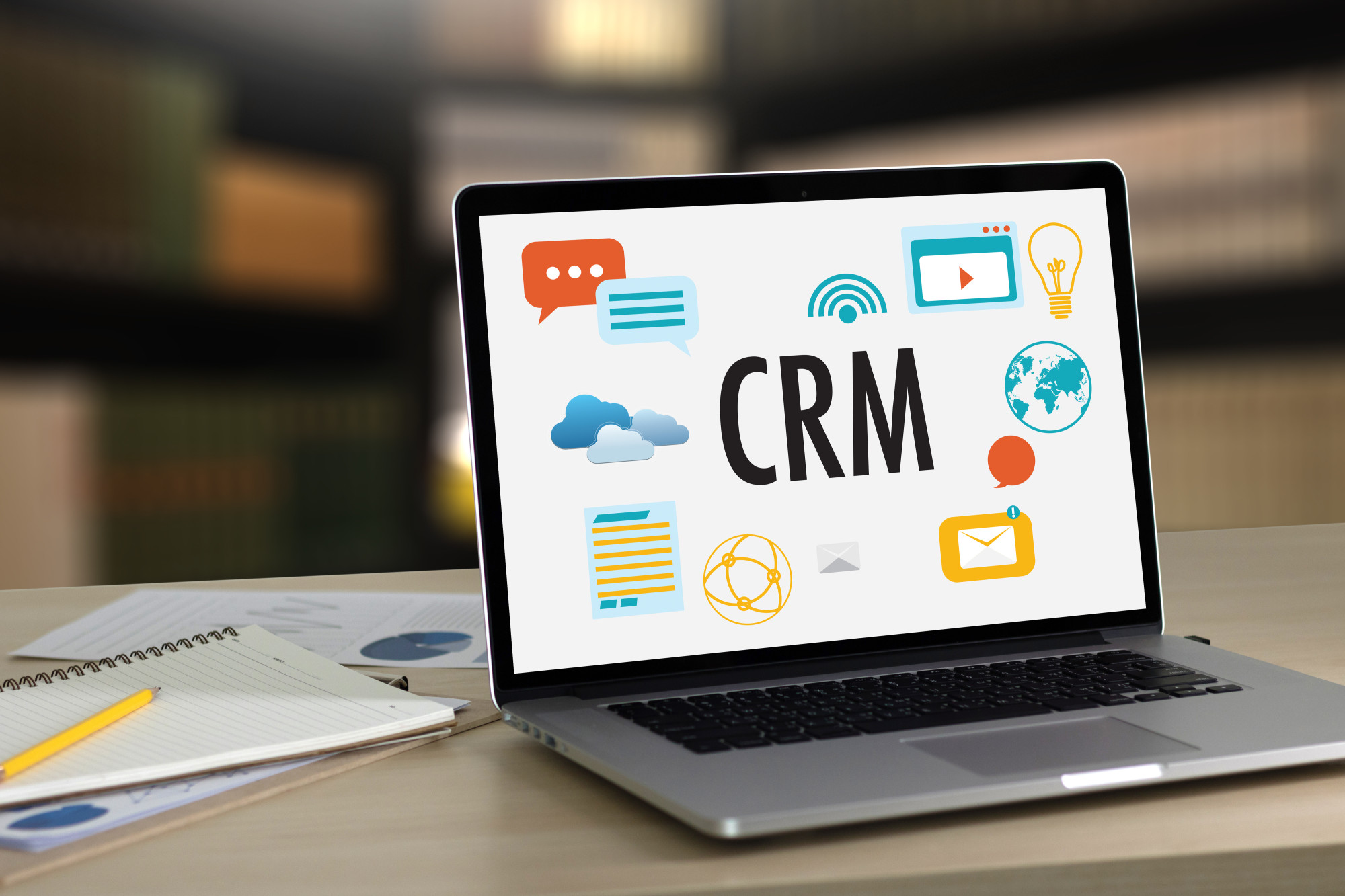
Successful CRM implementation is about more than just installing software—it’s a comprehensive process that requires planning, communication, and ongoing support. A well-executed rollout ensures teams adopt the new tool enthusiastically and see immediate value.
Steps for Effective CRM Implementation
To maximize the impact of CRM adoption, follow a structured approach:
- Define clear objectives and desired outcomes from CRM adoption
- Map existing processes and identify areas for improvement
- Select a CRM solution that aligns with your needs and capacity
- Customize fields, pipelines, and templates to suit your workflows
- Import and clean existing customer data to ensure accuracy
- Offer comprehensive training to all users
- Designate a CRM champion or support team for ongoing assistance
- Gather feedback and adjust configurations as needed
- Monitor usage and revisit goals to drive continuous improvement
Encouraging Team Adoption and Minimizing Resistance
Promote user engagement by demonstrating tangible benefits early, providing hands-on training, and encouraging open communication about feedback and challenges. Recognize early adopters and share success stories to build momentum.
Integrating CRM Software with Other Business Tools
CRM systems achieve their full potential when seamlessly connected with other business applications. Integrations reduce manual data entry, unify workflows, and provide a complete view of customer interactions.
Importance and Examples of CRM Integrations
By linking the CRM with email, accounting, marketing, and support platforms, businesses can automate lead capture, synchronize billing information, and personalize outreach campaigns. For instance, integrating with Mailchimp enables targeted email marketing, while connecting to QuickBooks streamlines invoicing and payment tracking.
| Integration Option | Supported Platforms |
|---|---|
| Email Integration | Gmail, Outlook, Exchange |
| Marketing Automation | Mailchimp, ActiveCampaign, HubSpot Marketing |
| Accounting & Billing | QuickBooks, Xero, FreshBooks |
| Customer Support | Zendesk, Freshdesk, Help Scout |
Integrating CRM with these tools allows small businesses to operate more efficiently, reduce errors, and deliver a more cohesive customer experience.
Customization and Scalability for Growing Small Businesses
As small businesses evolve, their CRM needs often change. The best CRM solutions offer customization and scalability to ensure long-term value, allowing businesses to adapt without outgrowing their systems.
Customization Features for Flexibility
Custom fields, workflow automation, and personalized dashboards allow businesses to tailor CRM systems to their processes and industry requirements. This flexibility ensures that as operations become more complex, the CRM remains a seamless fit.
Scalable CRM Functionalities
Scalability is essential for supporting business growth and expanding teams. Leading CRM platforms make it easy to add users, integrate new tools, and upgrade features as needs evolve.
- Adding new users or teams with role-based access controls
- Expanding pipeline stages for new product lines or services
- Integrating additional apps as business processes diversify
- Automating more workflows as volume increases
- Upgrading to advanced analytics or AI features as needed
These dynamic capabilities ensure the CRM grows with your business, eliminating the need for disruptive system changes down the road.
Security and Data Privacy Considerations: Best CRM Software For Small Businesses: The Ultimate Guide To Boosting Productivity And Growth
Protecting sensitive customer information is a top priority for small businesses using CRM software. Failing to safeguard data can result in financial loss, reputational damage, and legal repercussions.
Best Practices for CRM Data Security
Modern CRM solutions include security features and compliance standards to help businesses meet privacy obligations and protect customer trust.
- Data encryption (in transit and at rest)
- Multi-factor authentication for user access
- Role-based permissions to restrict sensitive information
- Regular software updates and vulnerability patches
- Audit logs and activity tracking
- GDPR, CCPA, and other relevant compliance certifications
Implementing these practices ensures that customer data remains secure and your business remains compliant with evolving regulations.
Measuring CRM Success and ROI for Small Businesses
Assessing the impact of CRM adoption is crucial for justifying investment and guiding future improvements. Small businesses should establish clear metrics to monitor productivity and growth linked to CRM usage.
Key CRM Performance Indicators, Best CRM Software for Small Businesses: The Ultimate Guide to Boosting Productivity and Growth
Tracking the right KPIs allows businesses to identify wins, address issues, and maximize return on investment.
| Performance Indicator | Description | How to Measure | Benefit |
|---|---|---|---|
| Sales Conversion Rate | Percentage of leads converted to customers | Closed deals ÷ total leads × 100 | Measures CRM’s impact on sales effectiveness |
| Customer Retention Rate | Proportion of returning customers | (Customers at end of period – new customers) ÷ customers at start × 100 | Assesses long-term relationship management |
| Average Deal Size | Average value of closed deals | Total value of deals ÷ number of deals | Evaluates impact on deal quality and upselling |
| Time to Close | Average time taken to move a lead through the pipeline | Total time to close deals ÷ number of deals | Highlights efficiency improvements from CRM automation |
Common Mistakes to Avoid When Selecting and Using CRM Software
Choosing and deploying a CRM can be challenging without careful planning. Many small businesses encounter obstacles that hinder CRM effectiveness or adoption.
Frequent Pitfalls and How to Overcome Them
Identifying common mistakes early prevents wasted resources and ensures smoother implementation. Here are pitfalls to watch out for, along with ways to prevent or correct them:
- Choosing a CRM with too many unnecessary features that overwhelm users
- Neglecting to involve end-users in the selection process
- Skipping data cleanup before migration, leading to inaccurate records
- Failing to provide ongoing training and support
- Ignoring integration capabilities with current business tools
- Underestimating the importance of data security and compliance
Illustrative Scenarios of Avoidable Mistakes
A small consulting firm selected a complex CRM with advanced modules it didn’t need. Employees found it difficult to use, leading to low adoption and missed opportunities. By switching to a simpler, more intuitive CRM and providing training, the team quickly improved usage rates.
Another business rushed CRM implementation without involving the sales team, resulting in a system that didn’t match their workflow. After consulting with staff and adapting fields, adoption rates and morale increased significantly.
Final Conclusion
In wrapping up, selecting the best CRM software for small businesses can be a game-changer, boosting productivity and supporting sustainable growth. By understanding your unique needs and following best practices for implementation, you can unlock powerful benefits and keep your customers at the heart of your business. Take the next step and let your CRM journey elevate your small business to new heights.
Detailed FAQs
What is CRM software and how does it benefit small businesses?
CRM software stands for Customer Relationship Management software. It helps small businesses organize customer data, manage sales processes, improve communication, and enhance customer satisfaction, all of which contribute to increased productivity and growth.
Is CRM software expensive for small businesses?
Many CRM solutions offer affordable pricing and scalable packages designed specifically for small businesses. Some even have free versions with essential features, making them accessible for different budgets.
Can CRM software integrate with other business tools?
Yes, most modern CRM software can integrate with commonly used tools such as email platforms, accounting software, and marketing automation systems, allowing you to streamline your operations.
How hard is it to implement CRM software in a small business?
Implementation can be straightforward with the right planning and training. Many CRM providers offer onboarding support and resources to help small businesses get started smoothly.
What should I look for when choosing CRM software?
You should consider ease of use, scalability, integration options, cost, customer support, and whether the CRM fits your industry-specific needs.

